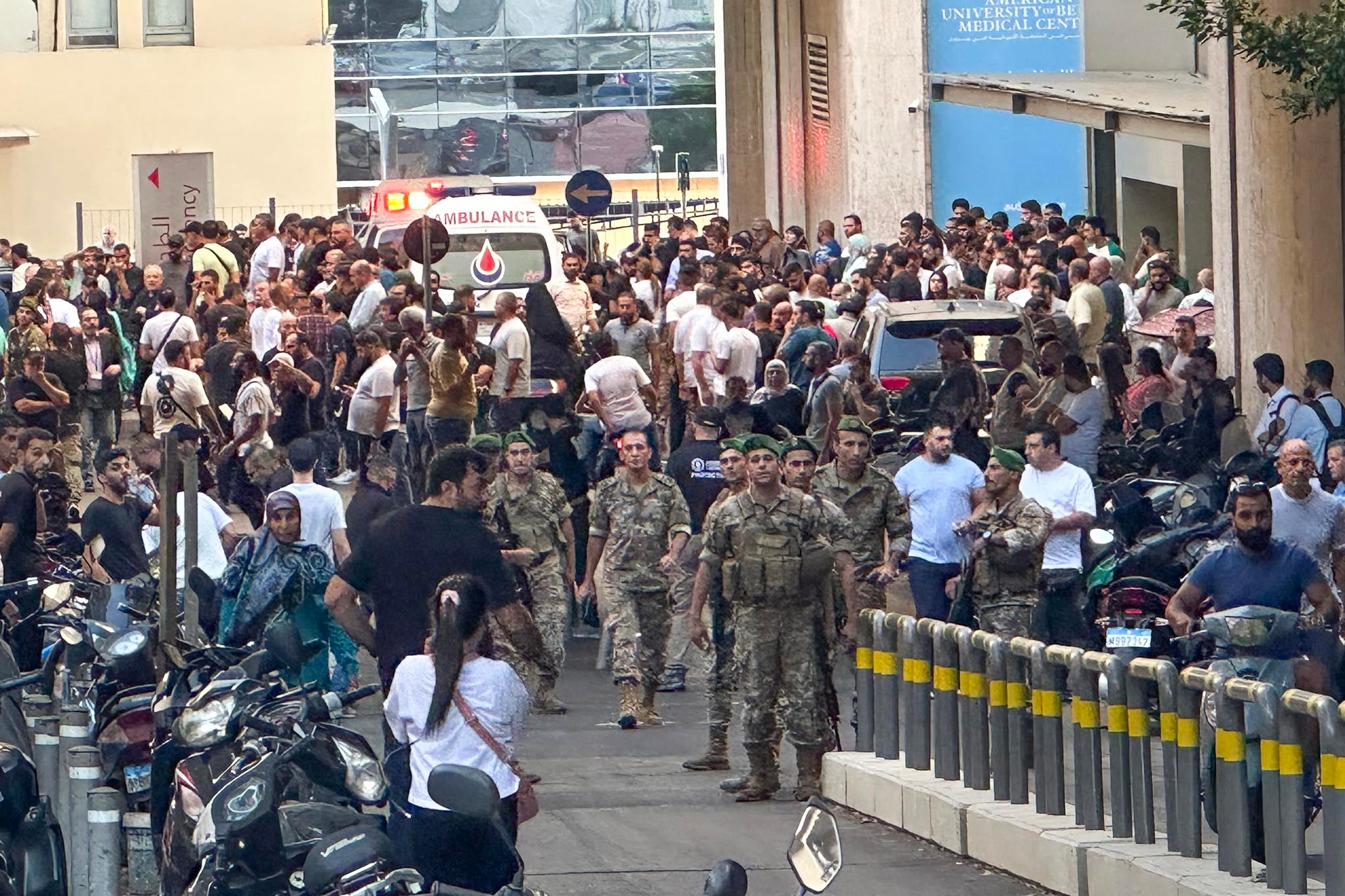Hezbollah pagers incident could pour fuel onto volatile situation in Lebanon
Israel and Iran-backed Hezbollah are engaging in daily cross-border fire, sparking fears their conflict could morph into a war, says Bel Trew


Your support helps us to tell the story
From reproductive rights to climate change to Big Tech, The Independent is on the ground when the story is developing. Whether it's investigating the financials of Elon Musk's pro-Trump PAC or producing our latest documentary, 'The A Word', which shines a light on the American women fighting for reproductive rights, we know how important it is to parse out the facts from the messaging.
At such a critical moment in US history, we need reporters on the ground. Your donation allows us to keep sending journalists to speak to both sides of the story.
The Independent is trusted by Americans across the entire political spectrum. And unlike many other quality news outlets, we choose not to lock Americans out of our reporting and analysis with paywalls. We believe quality journalism should be available to everyone, paid for by those who can afford it.
Your support makes all the difference.It seemed too extraordinary to be real.
At around 3.45pm local time, hundreds of pagers began spontaneously exploding across Lebanon and parts of Syria killing at least eight people, including a child and injuring 2800 others.
Among the wounded are fighters in the Lebanese militant group Hezbollah, medics and even Iran’s envoy to Beirut.
The videos - shared online - which purportedly showed the moment these explosions occurred, are even more bizarre and raised further questions. Men in supermarkets, at vegetable stalls and on motorcycles, are seen suddenly being knocked to the ground by the powerful blasts.
A Hezbollah official, speaking on condition of anonymity, told Reuters the detonation of the pagers was the “biggest security breach” they had been subjected to in nearly a year of conflict with Israel.
Publicly Hezbollah blamed Israel saying they hold them “fully responsible for this criminal aggression” which also targeted civilians, and threatened “just punishment” in return.
The Israeli military told The Independent “no comment” when asked if Israel was behind it.
The government, which had earlier that day announced the updated goal of its current war was to see its residents return to its northern border with Lebanon, was also tight-lipped.
But whatever caused this extraordinary incident, it will only pour fuel on a fast-spreading fire in the region, as it careers towards the anniversary of the devastating war in Gaza.
Stephane Dujarric , the United Nations spokesperson, was quick to say the developments in Lebanon were very concerning, especially given the “extremely volatile” context. There are major very real fears that could very well push the Middle East further towards the verge of an all-out multi-nation war.
On 7 October, Hamas militants and their allies raided southern Israel killing over1,200 people and taking nearly 250 hostage according to Israel’s count.
In retaliation, Israel’s ferocious bombardment of Gaza, and a crippling siege, have killed well over 40,000 people according to the Palestinian health ministry.
The impact of this has ricocheted well past the boundaries of either place. With Israel and Iran-backed Hezbollah engaging in daily cross-border fire, sparking fears it could morph into a war on a scale the two countries haven’t seen in nearly 20 years.
The Houthi rebels in Yemen, also considered an Iranian proxy, have launched several missiles towards Israel - the most recent on Sunday which set off air raid sirens in central Israel without causing casualties.
Israel and Iran themselves have traded fire - with Iran directly firing at Israel in April. Israel has been poised for some kind of retaliatory attack from Iran which threatened to avenge the killing of Hamas leader Ismail Haniyeh in an explosion in Tehran in July.
The targeted killing was widely blamed on Israel, which has not said whether it was involved.
The US, Qatar and Egypt have unsuccessfully spent most of the year trying to broker a ceasefire truce in which Hamas would release the hostages in exchange for a full Israeli withdrawal from Gaza and the release of Palestinians imprisoned by Israel.
The hope is that any kind of agreement could pour waters of calm on the boiling region.
But every time there has been some progress, events on the ground have overwhelmed efforts in the negotiating room.
And if this attack is indeed the responsibility of Israel - it could open a whole new chapter.
It deals a significant psychological blow to Hezbollah, which will now not only have to guard against insidious attacks around its backyard but in its back pocket.
Join our commenting forum
Join thought-provoking conversations, follow other Independent readers and see their replies
0Comments